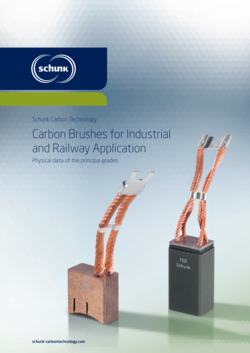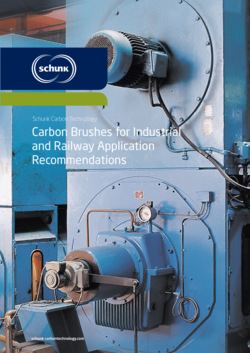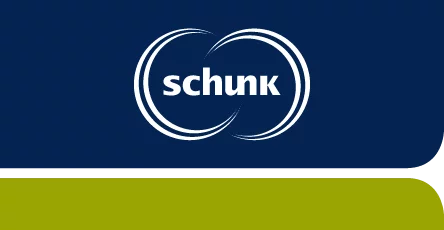for industrial and railway applications
Advantages
Special properties of our impregnated materials:
- Impregnation with salts (Q), synthetic resin, antimony and copper
- Higher oxidation resistance
- Longer service life
- Adjustment to humidity and environmental conditions
- Improved mechanical properties
- Improved load bearing capacity

Physical Data: Carbon Brushes
Add

Recommendations: Carbon Brushes
for industrial and railway applications
Add
Downloads
2 Files online
